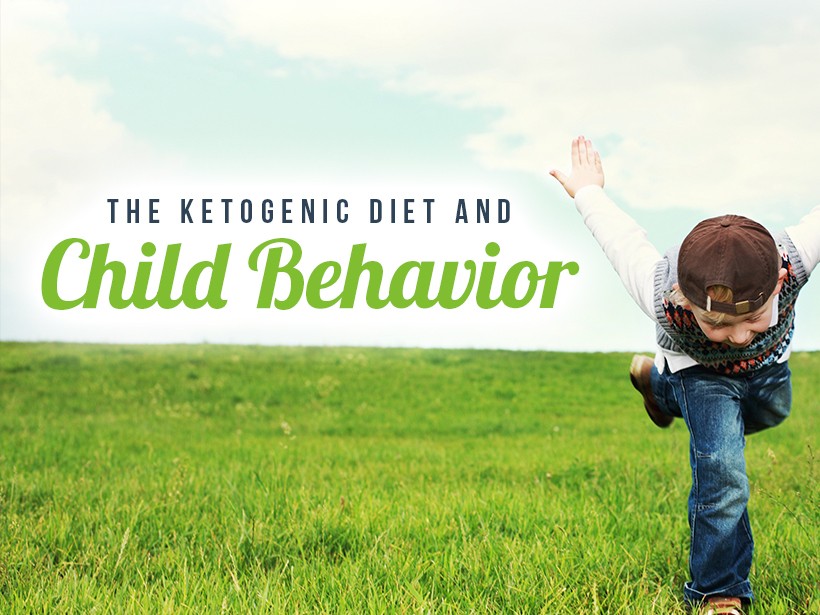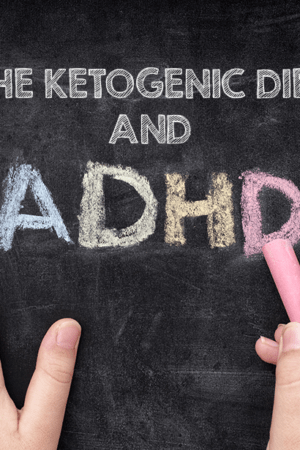Parents may be unwittingly feeding their children behavioral issues in their breakfast cereal. Sugar hides in foods that appear healthy to parents, including seemingly kid-friendly foods such as oatmeal, applesauce, and cereal.
The Impact of High-Glycemic Loads on Children
Many American children are diagnosed with Attention-Deficit/Hyperactivity Disorder (ADHD) and other behavioral issues that affect their performance in the classroom and their relationships at home. Is there a link between behavior and diet? Studies show that low intake of Vitamin C and whole foods as snacks is associated with higher ADHD risk among fifth graders.1 Another study found that attention problems increased among children with ADHD after the consumption of sugary snacks.2
Moreover, a 2007 study found that when children eat a low-glycemic breakfast, they have improved short term memory and attention span at school.3
With these findings in mind, how can the ketogenic diet improve child behaviors?
Keto Improves a Child’s Ability to Focus
The ketogenic diet has long been employed to improve symptoms of epilepsy in children. Throughout the years, researchers also discovered that the ketogenic diet seemed to improve symptoms of ADHD in children with both epilepsy and ADHD. They saw increases in the ability to focus, and fewer hyperactivity and attention deficit problems.4
In a controlled experiment with rats, researchers found that rats on a ketogenic diet experienced less anxiety and lower activity levels. This suggests that the ketogenic diet may be instrumental in the treatment of ADHD and other focus/attention issues in children.5
Keto, Kids, and Cognitive Functioning
In a 2001 study performed by Johns Hopkins University, researchers studied children who embarked on the ketogenic diet to manage seizures. They not only found a significant decrease in seizures, but they also found behavioral improvements in attention span and social functioning.6
This is encouraging for children who experience a hard time focusing and relating to peers in the classroom. A more recent study from 2016 found that children and adolescents on the ketogenic diet experienced improvements in behavior and cognitive functioning. They also observed activated mood and “cognitive activation”, which means that the children were better able to make connections between information, and were more alert and attentive.7
Fewer Mood Problems are Reported for Children on the Keto Diet
Children on the ketogenic diet are reported as being more active and productive. They have fewer anxiety and mood problems, and in fact, the ketogenic diet has no negative impact on the moods, behaviors, and cognitive functioning of children.8
Additionally, a 2006 study found that children on the ketogenic diet experience improved sleep quality and more REM sleep. These researchers also noted an improvement in attentional behavior. Children who do not get enough sleep are shown to have higher levels of oppositional behavior, ADHD symptoms, lower quality of life, higher asthma severity, and overall worse daytime behavior. The ketogenic diet’s ameliorating effect on childhood sleep issues may contribute to a child’s daytime behaviors, functioning, and ability to learn.9
This is good news for children who are being treated for epileptic seizures. The benefits of the keto diet may prove richer than expected.
Behavioral Benefits for Babies
These benefits were even noted in infants on the ketogenic diet. Parents reported not only a reduction in infantile spasms/myoclonic seizures, but they also reported major improvements in their infant’s behaviors pertaining to attention, alertness, activity level, and ability to socialize. 10
So if your child is experiencing difficulties in behaviors, cognition, and school performance, it might be time to talk to the pediatrician about the benefits of a ketogenic diet. Sometimes, lifestyle changes are all a child needs in order to feel (and therefore behave) better. And when the whole family changes their lifestyle for the better, health outcomes are long-lasting and life-changing.
NUTRITIONAL DISCLAIMER
The content on this website should not be taken as medical advice and you should ALWAYS consult with your doctor before starting any diet or exercise program. We provide nutritional data for our recipes as a courtesy to our readers. We use Total Keto Diet app software to calculate the nutrition and we remove fiber and sugar alcohols, like erythritol, from the total carbohydrate count to get to the net carb count, as they do not affect your blood glucose levels. You should independently calculate nutritional information on your own and not rely on our data. The website or content herein is not intended to cure, prevent, diagnose or treat any disease. This website shall not be liable for adverse reactions or any other outcome resulting from the use of recipes or recommendations on the Website or actions you take as a result. Any action you take is strictly at your own risk.
- A Ketogenic Pregnancy: Is It Safe? - June 20, 2018
- Perfect Keto Nut Butter is, Well, Perfect for Keto - May 14, 2018
- The Silicon Valley’s Favorite Diet? Brain-Boosting Keto - May 11, 2018




